In this tutorial, you will learn how to remove distracting objects like pedestrians from a beach video to create a scene without people. By using the content-aware fill feature in Adobe After Effects, you will be able to intelligently replace these objects with the background. The entire process is explained step by step so that you can also apply this in your own projects.
Key Insights
- Content-aware filling in After Effects allows for removing objects from video footage and replacing them with suitable environmental content.
- Creating a precise mask is crucial for the success of the process, especially to ensure that the surrounding images are correctly interpreted.
- Tracking objects over time is necessary to ensure that the mask covers the objects in the image throughout the entire shot.
Step-by-Step Guide
1. Import your Video
Open Adobe After Effects and import your footage by dragging the corresponding file into the project window. Now create a new composition.
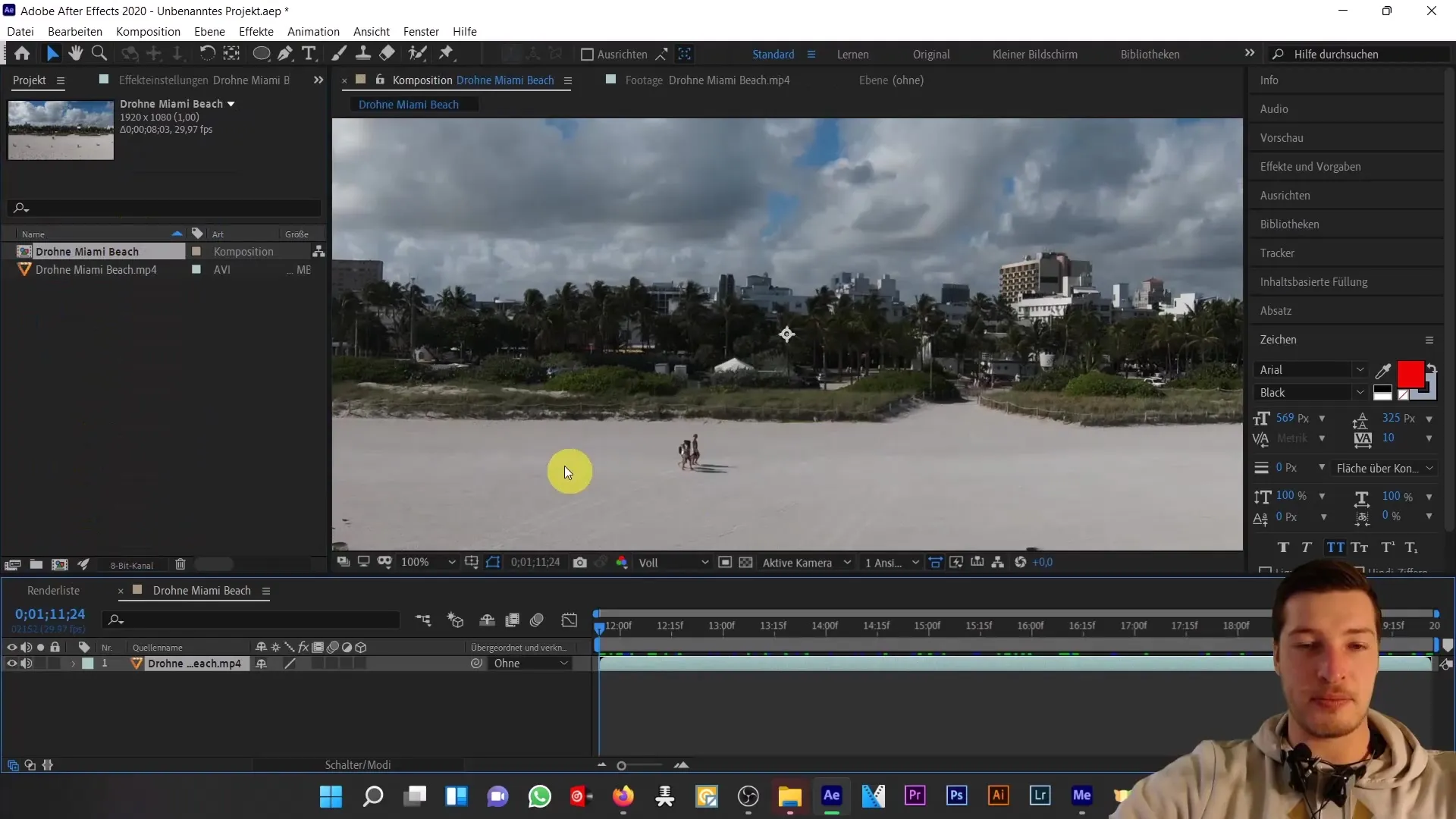
When you insert the video into the composition, you will see the shot showing a beautiful beach landscape. However, there are some pedestrians in the shot that we want to remove.
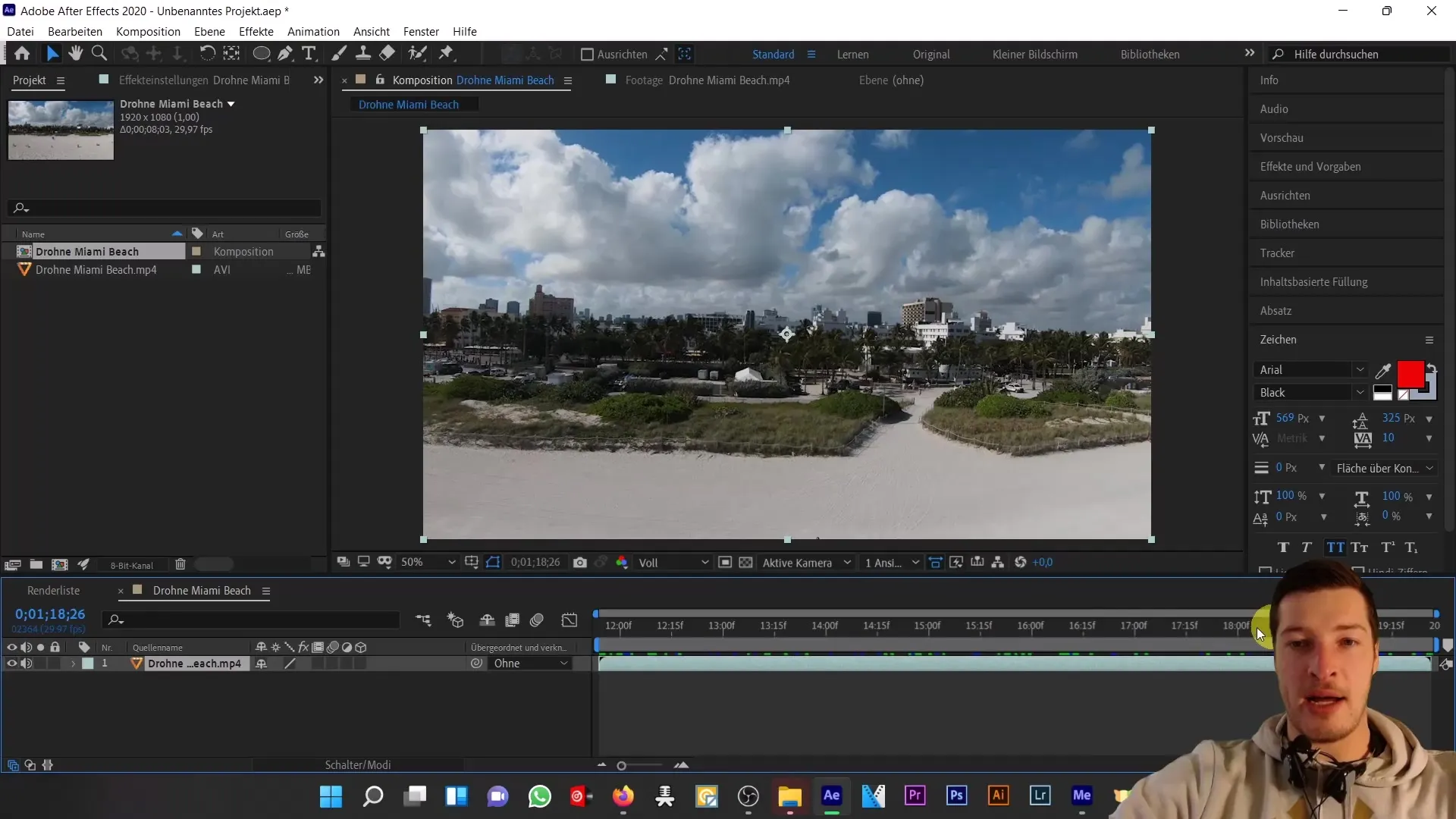
2. Activate Content-Aware Fill
You can find the content-aware Fill on the right side under the tracker. If it's not visible, go to "Window" and select "Content-Aware Fill" to display the window.
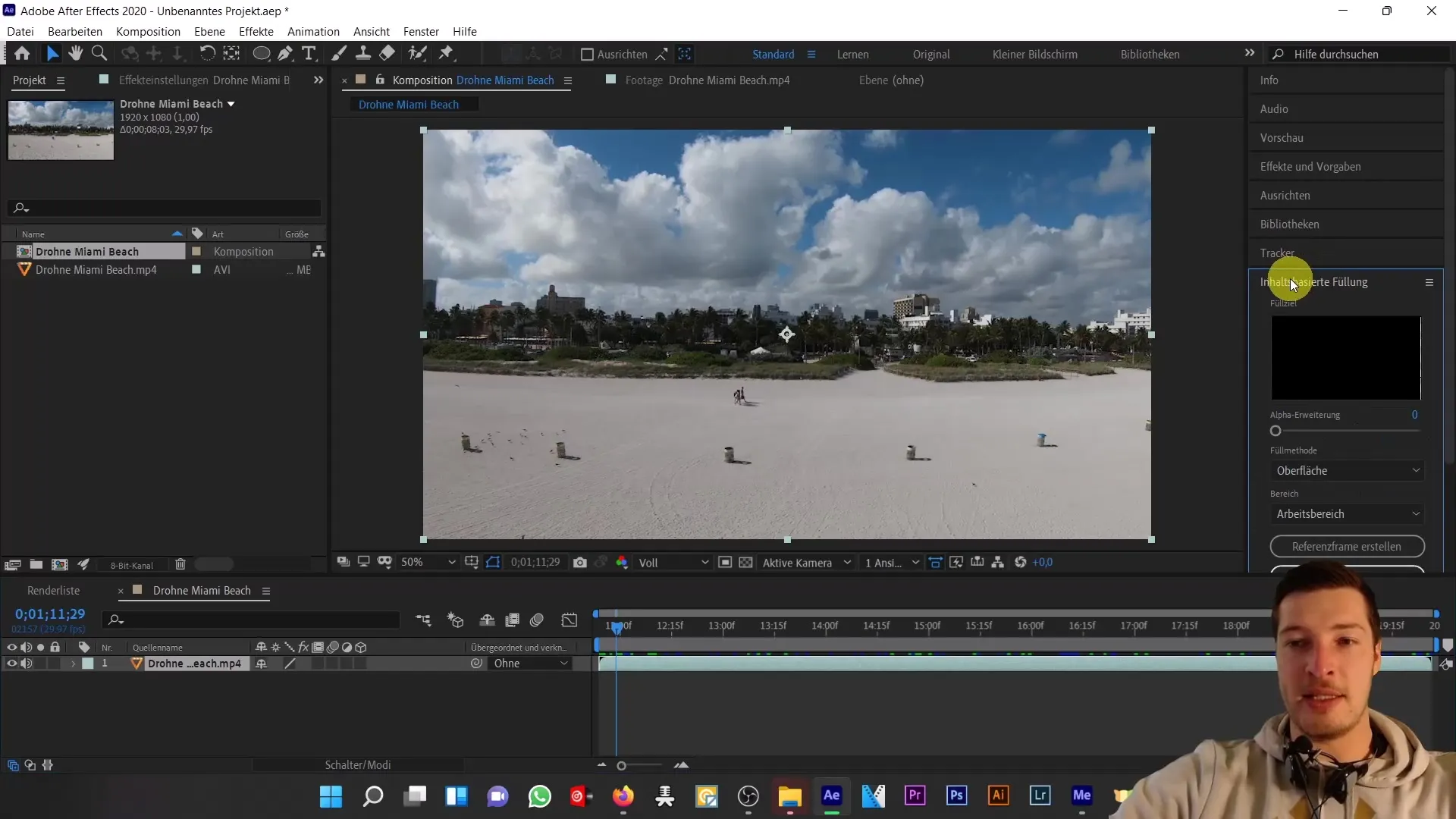
3. Create a Mask around the Pedestrians
To remove the pedestrians from the shot, you need a mask. Select the ellipse tool and hold down the Shift key to create a perfect circle while drawing.
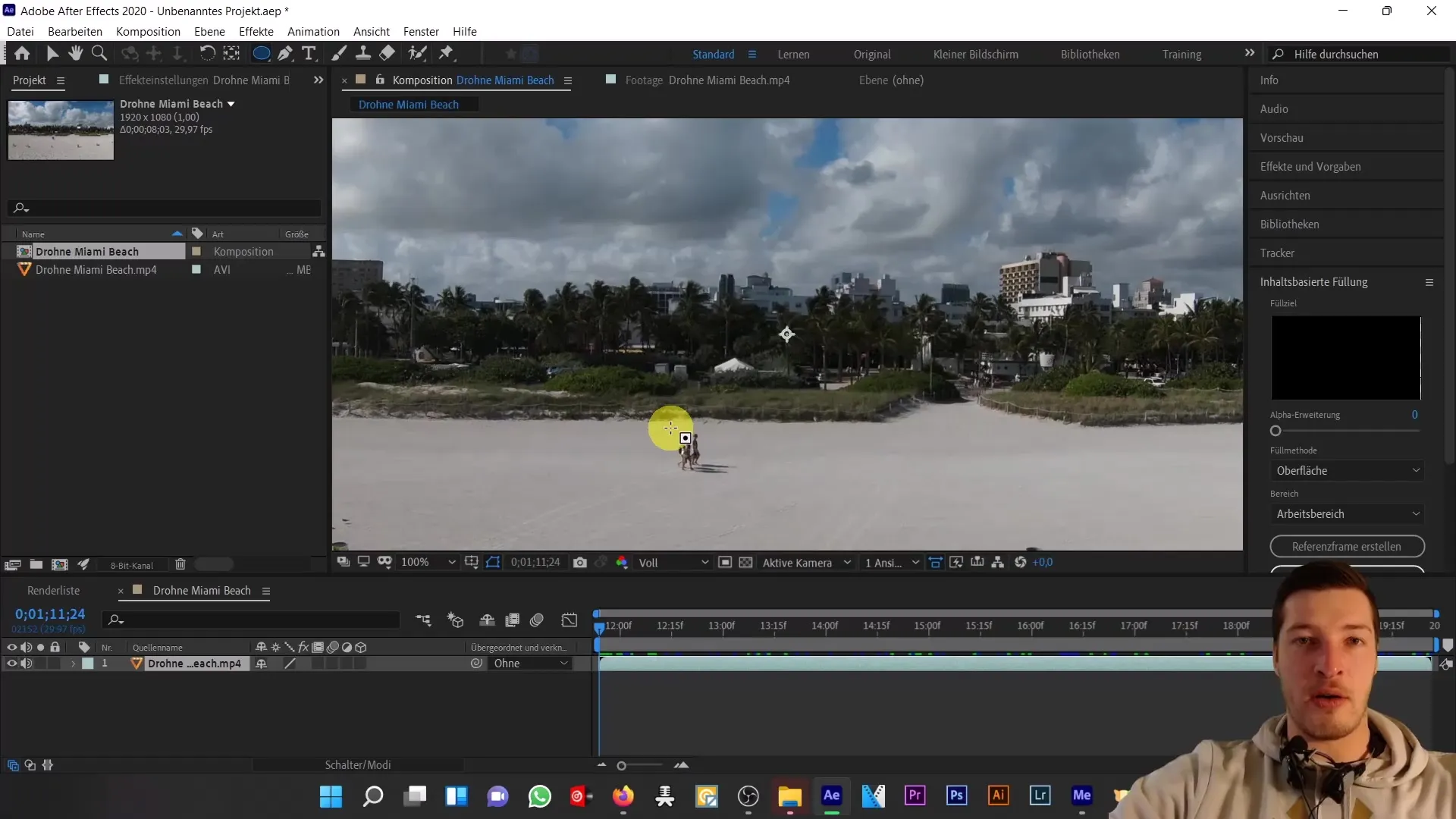
Draw the mask generously around the pedestrians, including their shadows. Make sure the mask is not drawn too close to the objects to avoid artifacts.
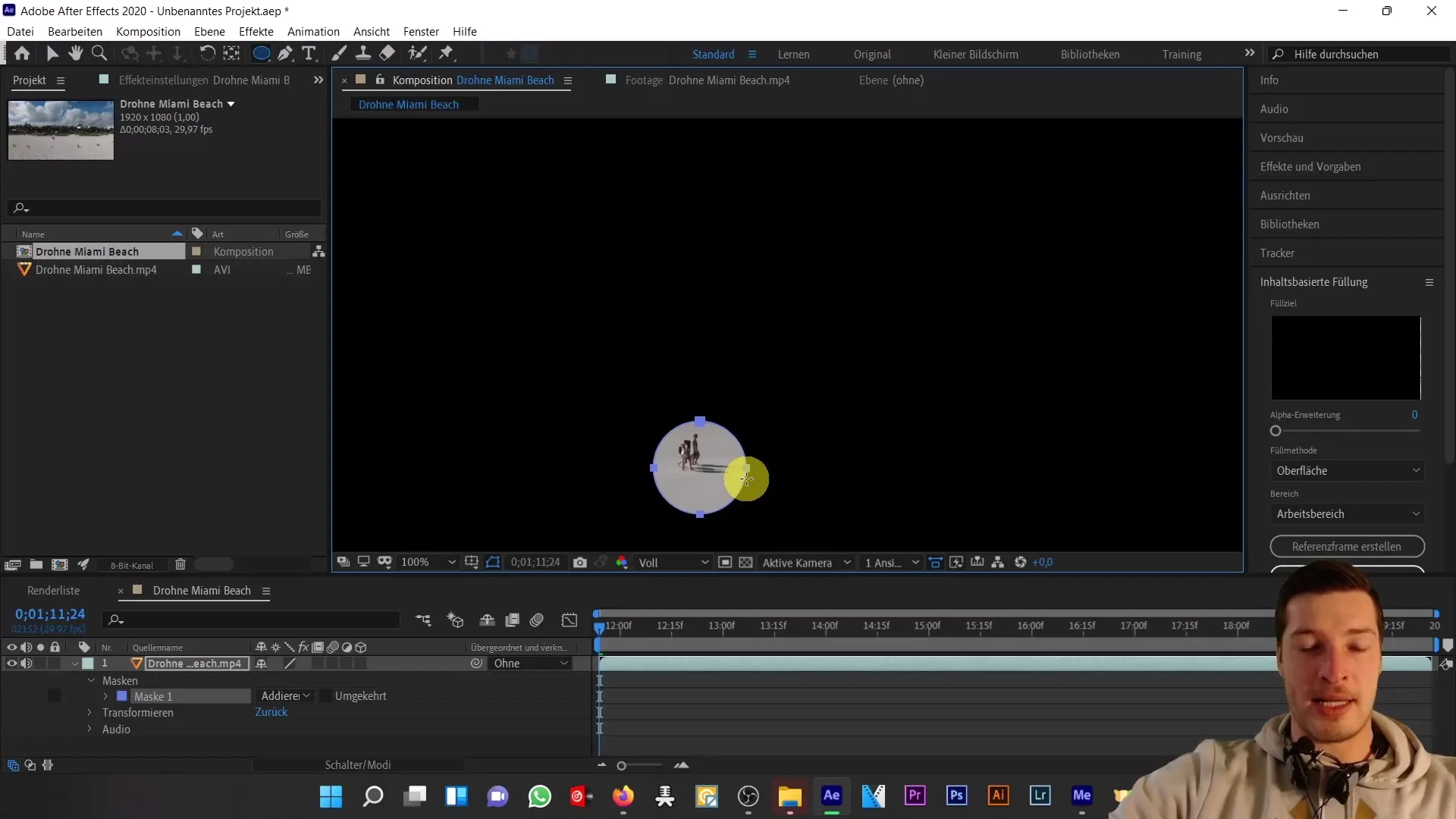
4. Track the Pedestrians
Activate the stopwatch for the mask path to set a keyframe. Go to the end of the composition and temporarily turn off the mask to see where the pedestrians are. Now slide the entire mask to track the pedestrians over the course of the video.
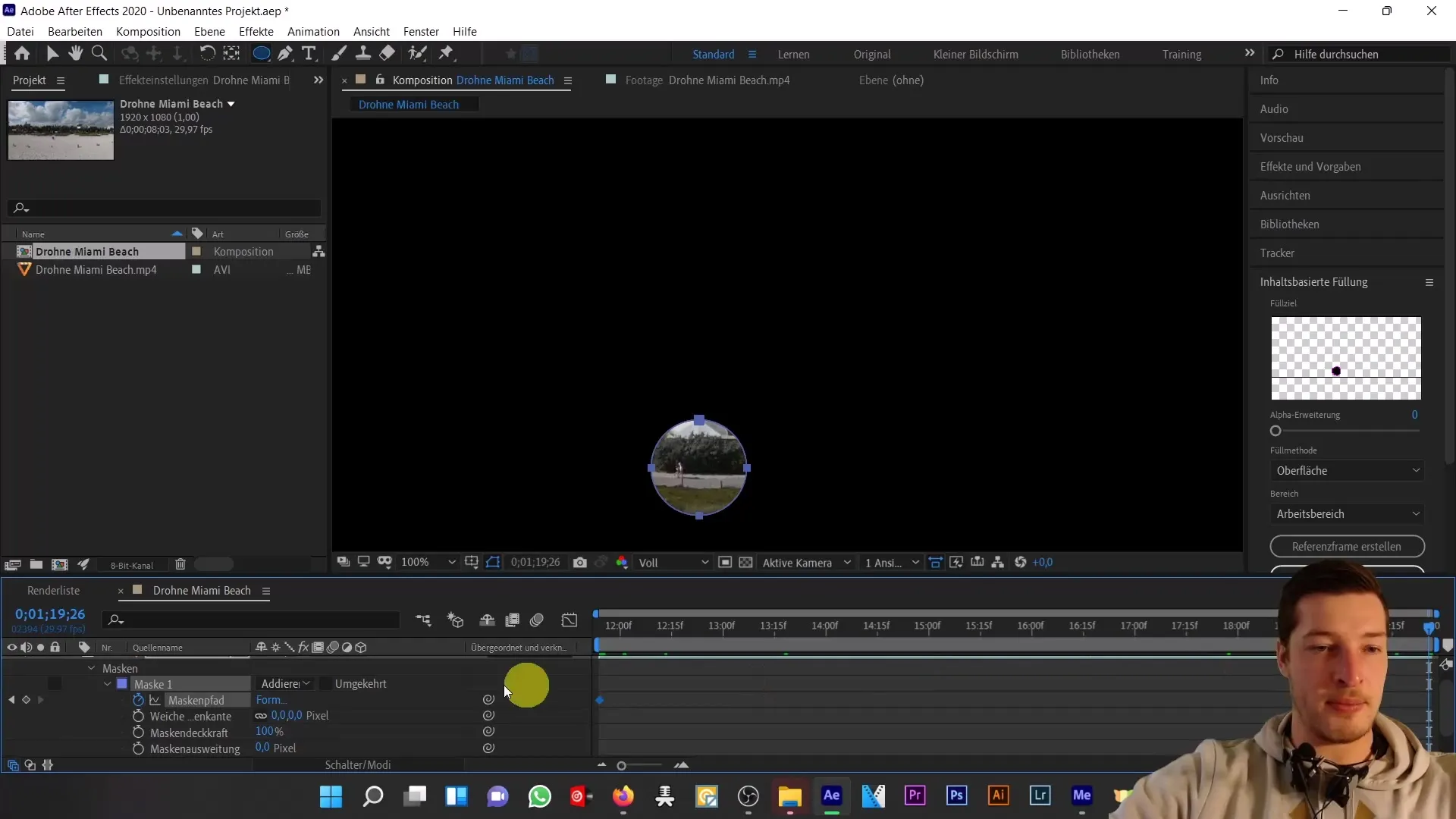
Make sure to move the entire mask by holding down the Alt key. This prevents parts of the mask from being inadvertently shifted.
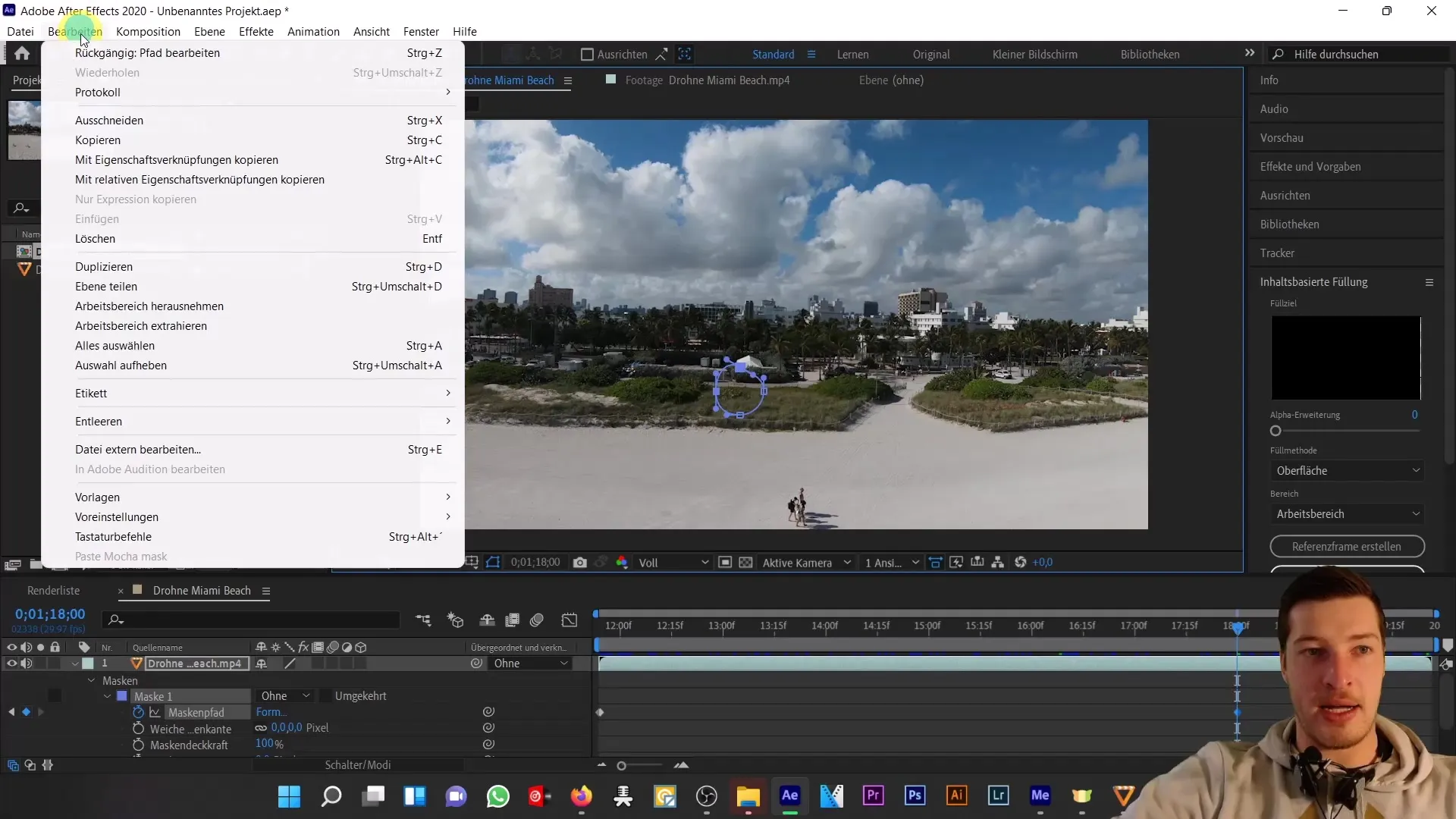
5. Mask Expansion
To ensure the mask remains dynamic, set keyframes for mask expansion as well. This can help adjust the mask size as the pedestrians move.
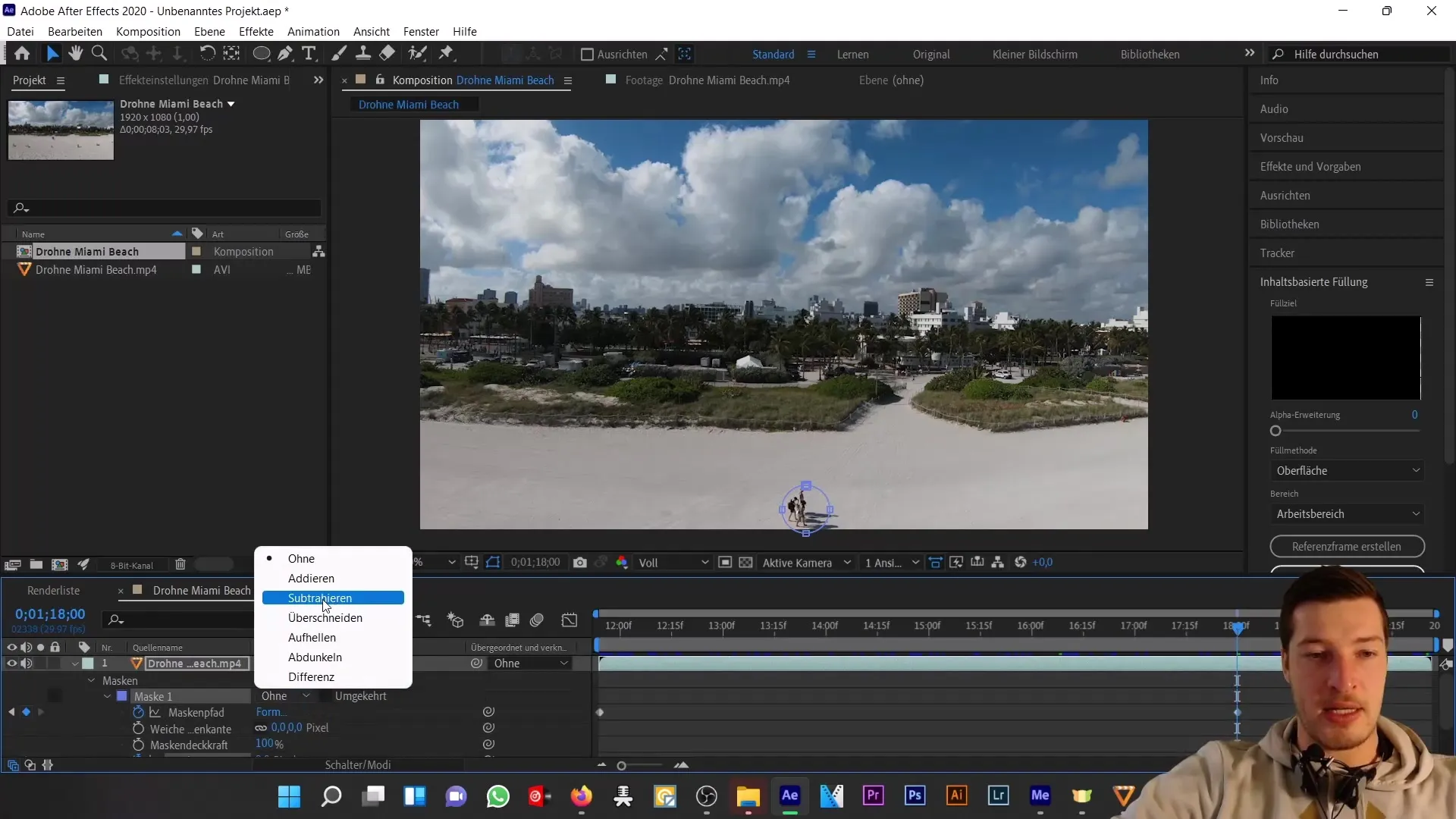
6. Check the Mask
It's important to regularly check if the mask still covers the pedestrians throughout the entire shot. You can adjust the mask at different timepoints to position it optimally.
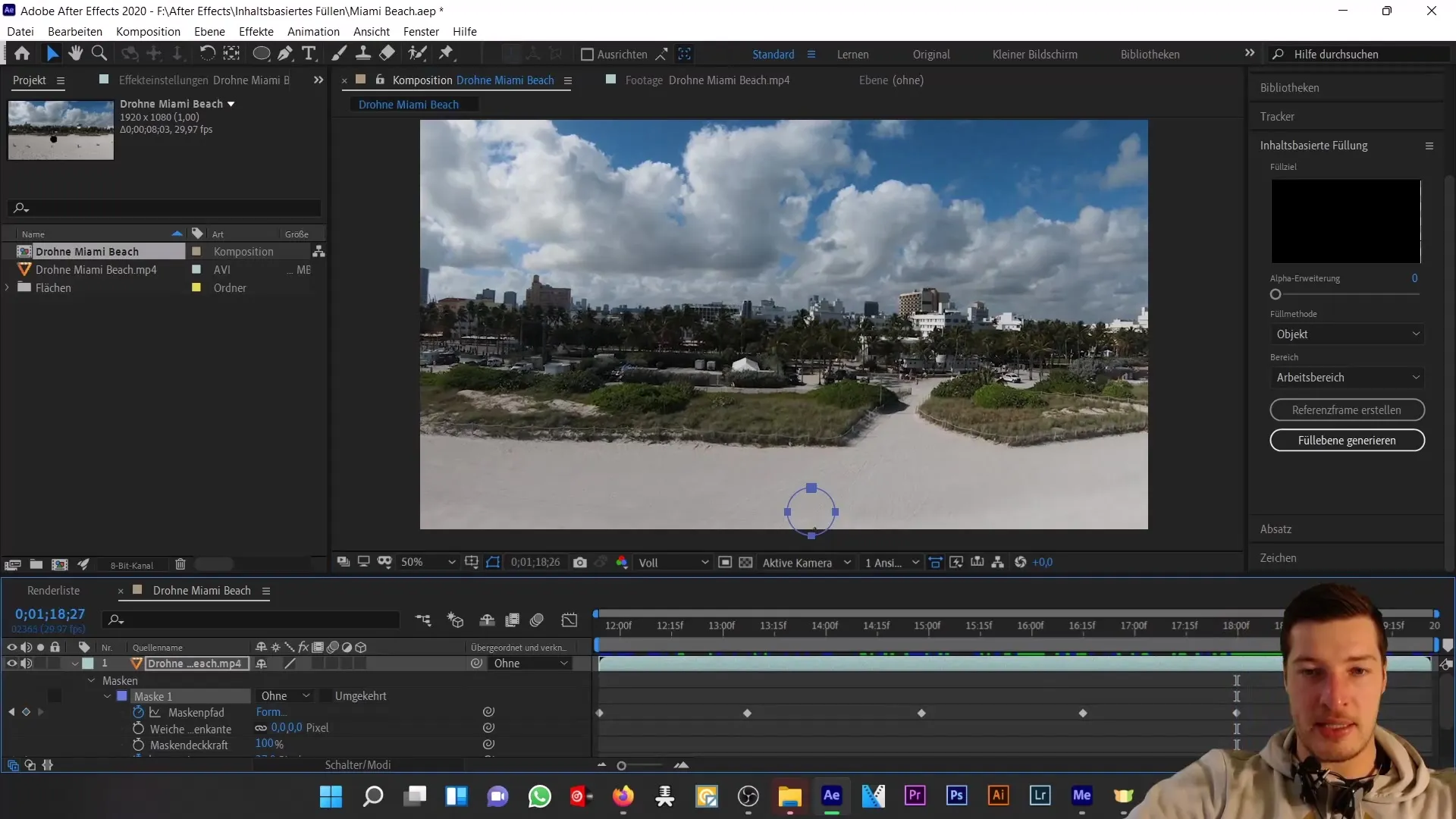
Once you are certain the mask is set correctly, place another keyframe at the end of the composition.
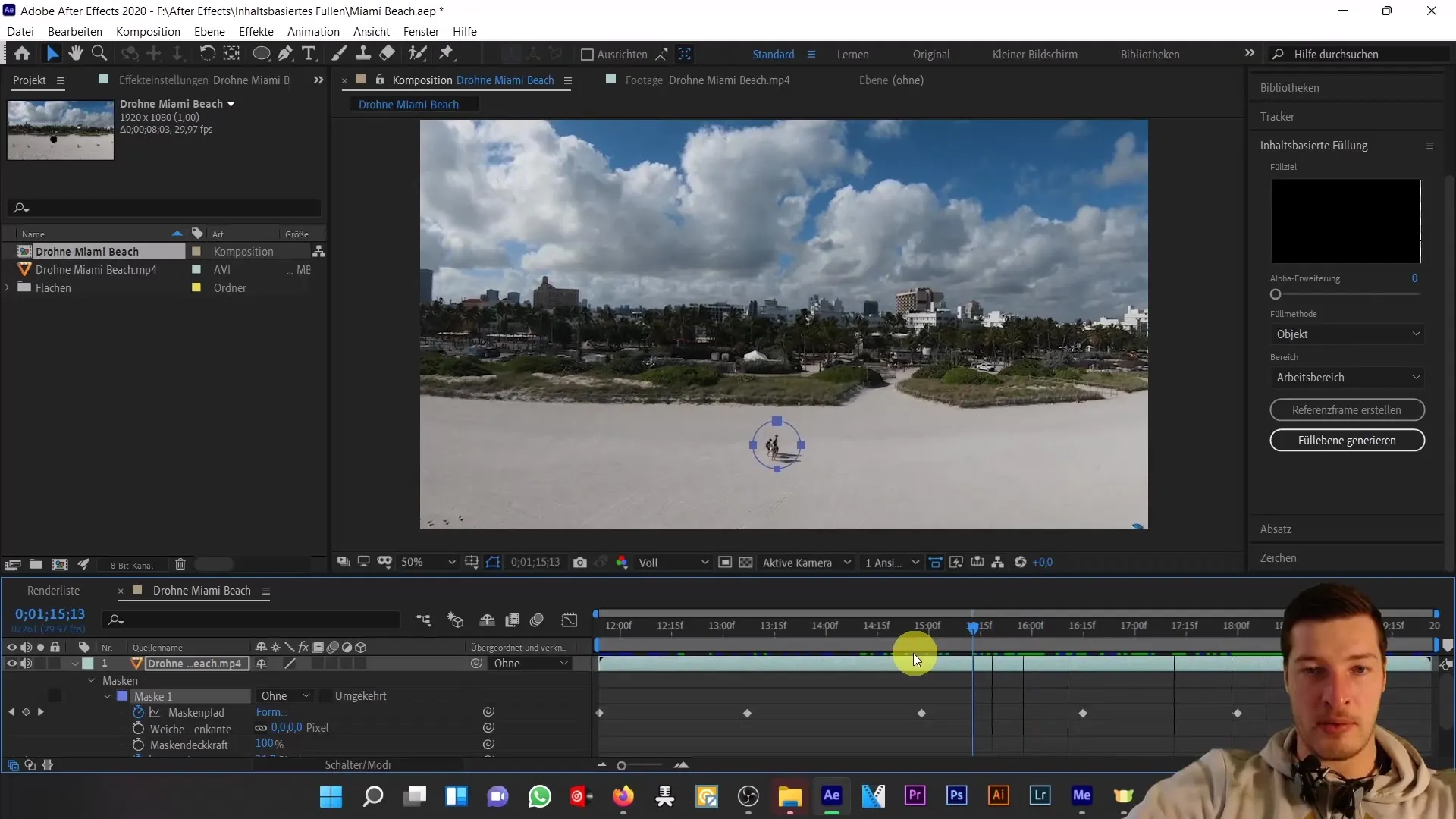
7. Applying Content-Aware Fill
Now that the mask is correct, you need to subtract it from the image area. Switch to the settings for content-aware fill and choose "Object" as the fill method. Set "Workspace" under the area to ensure that the entire area is used for filling.
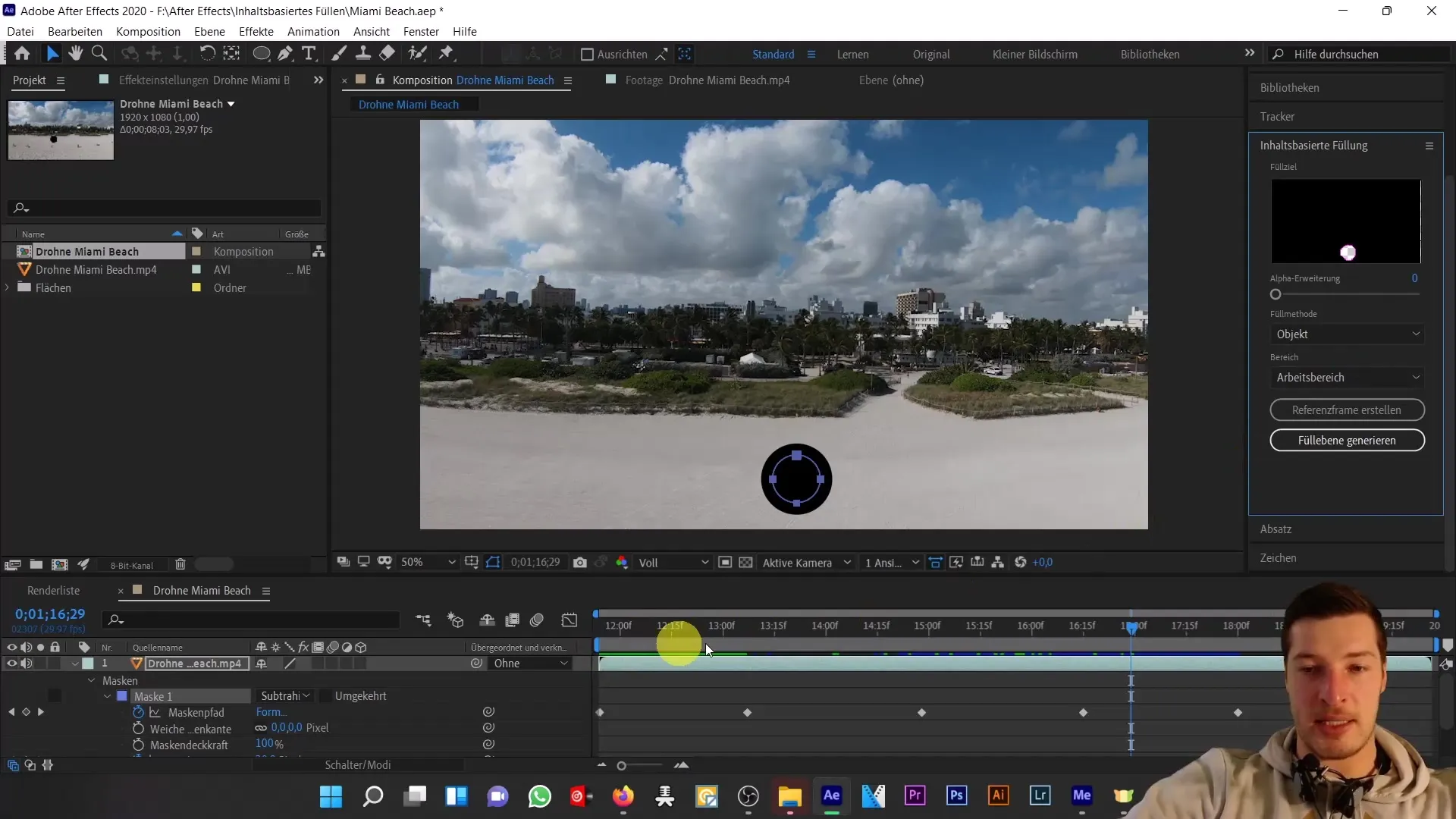
8. Generate the Fill Layer
Click on "Generate Fill Layer". After Effects may prompt you to save your project. Let the process run. The analysis may take some time.
9. Checking the Result
After the process is complete, you will see in the preview area that the pedestrians are no longer visible and the beach now looks empty. Content-aware fill has intelligently reconstructed the environment.
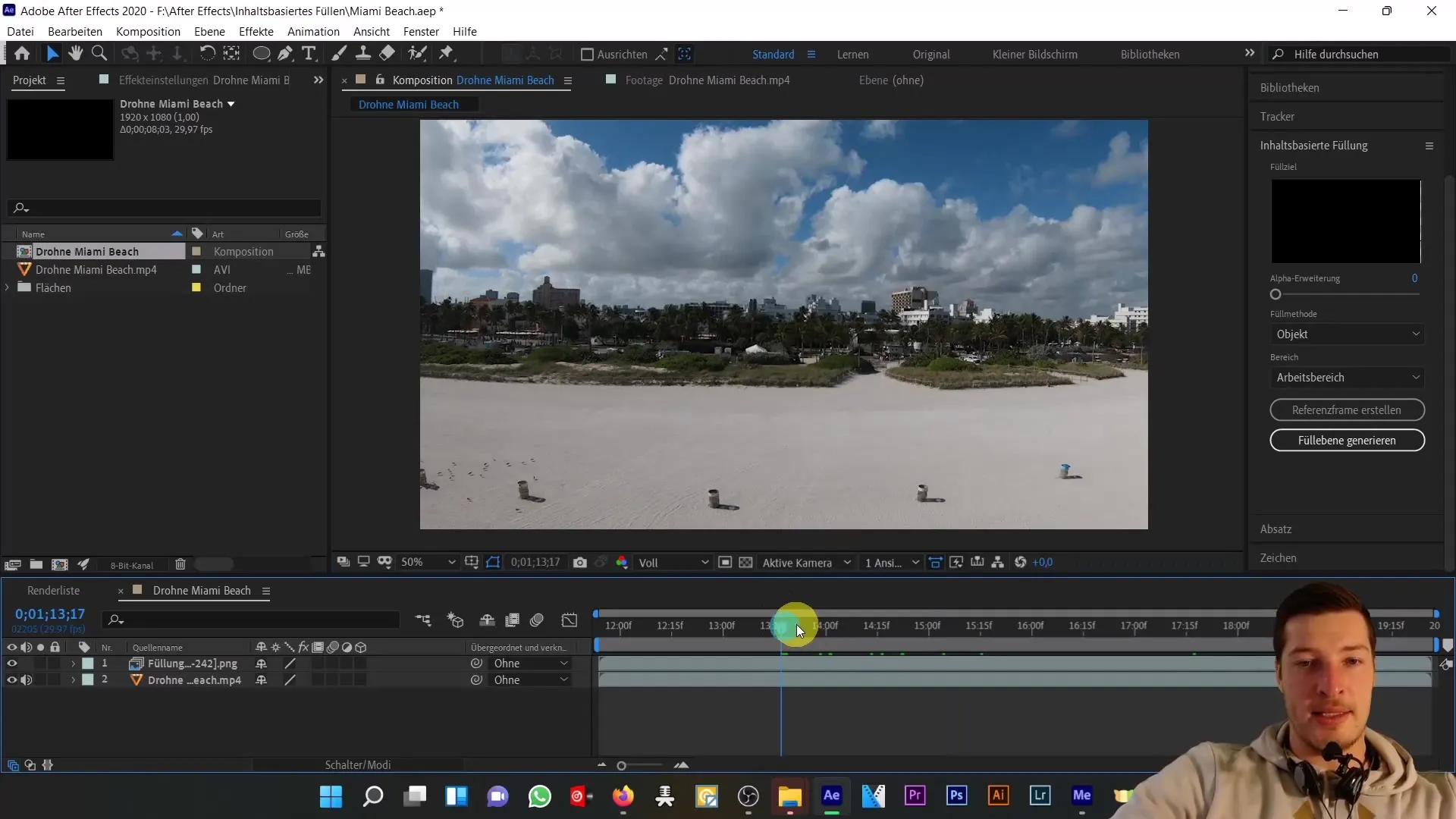
10. Fine-Tuning
If black edges appear at the edge of the mask, you can duplicate the background layer and apply a smaller mask. Reduce the mask expansion to improve the filling quality.
11. Conclusion
After going through all the steps for content-aware filling, you can ensure that the result is satisfactory. For slightly more complex scenarios, it may be necessary to apply additional masks or experiment with different techniques.
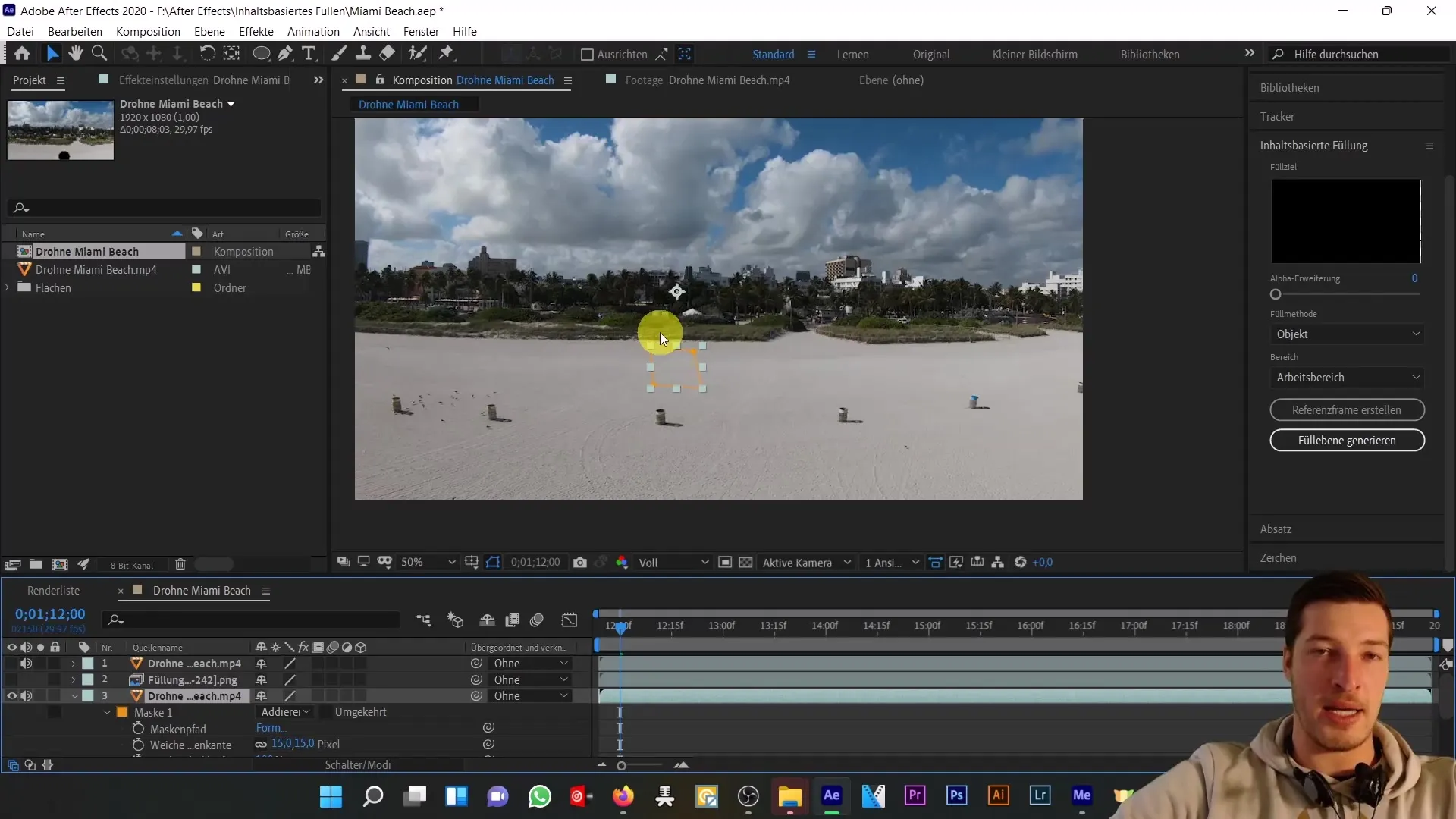
Summary
In this tutorial, you have learned how to use content-aware fill in Adobe After Effects to remove unwanted objects from a video, achieving an appealing visual representation. You have followed the steps to create a precise mask and track the objects throughout the entire video.
Frequently Asked Questions
How does content-aware fill work in After Effects?Content-aware fill allows you to remove unwanted objects from a video by automatically reconstructing the environment.
What steps are necessary to create a mask?Select the Ellipse tool, hold down the Shift key, and draw the mask around the unwanted object, making sure to consider the surroundings as well.
How can I ensure the mask tracks the pedestrians over time?Set keyframes for the mask path and mask expansion while adjusting the mask position to match the movements of the pedestrians.
What can I do if black edges appear around the mask?You can duplicate the background image and reduce the mask expansion to mask the protruding edges.
When is using content-aware fill useful?It is useful when you want to remove distracting objects in calm or repetitive environments where the background is easy to reconstruct.


